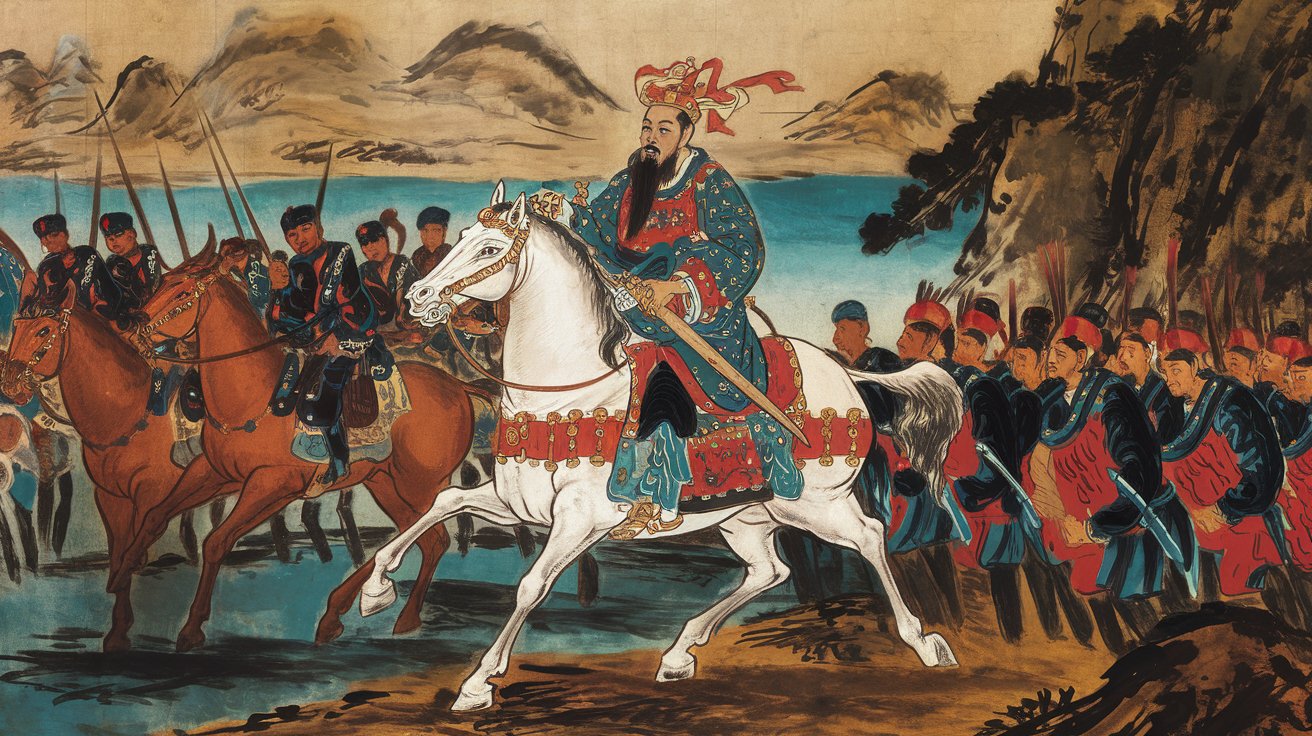
Igbo Landing is a significant historical site that holds a powerful story of resistance and resilience. Located in Georgia, this place witnessed a tragic yet inspiring event in 1803. Enslaved Igbo people, brought from West Africa, chose to drown themselves rather than submit to slavery. This act of defiance has become a symbol of courage and the fight for freedom. The story of Igbo Landing has been passed down through generations, influencing African American folklore, literature, and even music. Understanding Igbo Landing helps us appreciate the strength and spirit of those who stood against oppression. Let's dive into 37 intriguing facts about this remarkable event and its lasting impact.
Key Takeaways:
- The Igbo Landing event in 1803 symbolizes the resistance and fight for freedom of the Igbo people from Nigeria, inspiring pride and empowerment in African American heritage.
- The mass suicide at Igbo Landing, where the Igbo captives chose death over slavery, has left a lasting legacy in African American culture, inspiring activism and commemorations to honor their bravery.
The Historical Context of Igbo Landing
Igbo Landing is a significant event in African American history. It symbolizes resistance and the fight for freedom. Here are some fascinating facts about this historical event.
-
Igbo Landing occurred in 1803: This event took place on St. Simons Island, Georgia.
-
The Igbo people were from Nigeria: They were part of the Igbo ethnic group, known for their strong resistance to enslavement.
-
Captured and sold into slavery: These individuals were captured by African slave traders and sold to European merchants.
-
The ship was called the Wanderer: The enslaved Igbo were transported on a ship named the Wanderer.
-
Revolt on the ship: During the voyage, the Igbo captives overpowered the crew and took control of the ship.
-
Ship grounded at Dunbar Creek: The ship was intentionally grounded at Dunbar Creek on St. Simons Island.
The Mass Suicide at Igbo Landing
The most poignant part of the Igbo Landing story is the mass suicide that followed the revolt. This act of defiance has been remembered for generations.
-
Led by a chief: The Igbo were led by a chief who inspired them to resist enslavement.
-
Walked into the water: The Igbo captives walked into the water, choosing death over slavery.
-
Chanted in Igbo language: They chanted in their native language, expressing their desire for freedom.
-
Belief in returning to Africa: The Igbo believed their spirits would return to Africa after death.
-
Witnessed by locals: Local residents witnessed the mass suicide and were deeply affected by it.
-
Survivors were recaptured: Some Igbo who survived the initial drowning were recaptured and sold into slavery.
Cultural Impact and Legacy
Igbo Landing has left a lasting legacy in African American culture and history. It has been remembered and honored in various ways.
-
Oral traditions: The story of Igbo Landing has been passed down through generations via oral traditions.
-
Symbol of resistance: It serves as a powerful symbol of resistance against oppression.
-
Inspired literature: The event has inspired numerous works of literature, including novels and poems.
-
Music and songs: Musicians have created songs to honor the bravery of the Igbo people.
-
Art and paintings: Artists have depicted the event in various forms of visual art.
-
Annual commemorations: Some communities hold annual commemorations to remember Igbo Landing.
Igbo Landing in Modern Media
The story of Igbo Landing continues to resonate in modern media, highlighting its enduring significance.
-
Referenced in TV shows: TV shows like "Underground" have referenced Igbo Landing.
-
Documentaries: Documentaries have been made to educate people about this historical event.
-
Films: Filmmakers have explored the story in various movies.
-
Academic research: Scholars have conducted extensive research on Igbo Landing.
-
Museum exhibits: Museums have created exhibits to showcase the history of Igbo Landing.
The Spiritual and Mythological Significance
The spiritual and mythological aspects of Igbo Landing add another layer of depth to its story.
-
Connection to African spirituality: The event is deeply connected to African spiritual beliefs.
-
Myth of flying Africans: Some legends suggest the Igbo flew back to Africa, symbolizing their spiritual journey.
-
Water as a spiritual element: Water holds significant spiritual meaning in many African cultures.
-
Ancestral reverence: The Igbo people are honored as ancestors who fought for freedom.
-
Rituals and ceremonies: Some African American communities perform rituals to honor the spirits of Igbo Landing.
Educational Importance
Understanding Igbo Landing is crucial for comprehending the broader context of African American history and the fight for freedom.
-
Taught in schools: Some educational curriculums include Igbo Landing in their history lessons.
-
Historical tours: Guided tours on St. Simons Island educate visitors about the event.
-
Books and publications: Numerous books have been written to document and analyze Igbo Landing.
-
Online resources: Websites and online platforms provide information about the event.
-
Lectures and seminars: Historians and scholars give lectures to spread awareness about Igbo Landing.
The Broader Impact on African American Identity
Igbo Landing has played a significant role in shaping African American identity and cultural heritage.
-
Sense of pride: The story instills a sense of pride in African American heritage.
-
Connection to African roots: It strengthens the connection to African ancestry.
-
Empowerment: The bravery of the Igbo people serves as a source of empowerment.
-
Inspiration for activism: The event inspires modern-day activism and the fight for justice.
The Legacy of Igbo Landing
Igbo Landing stands as a powerful symbol of resistance and resilience. This historical event, where a group of enslaved Igbo people chose death over bondage, continues to inspire and educate. Their courageous act has been remembered through oral traditions, literature, and even modern media. It's a stark reminder of the brutal realities of slavery and the unbreakable spirit of those who fought against it.
Understanding Igbo Landing helps us appreciate the strength and determination of the human spirit. It also underscores the importance of preserving history, no matter how painful. By remembering these events, we honor the sacrifices made and ensure future generations learn from the past. Igbo Landing isn't just a story; it's a testament to the enduring fight for freedom and dignity. Let's keep their legacy alive by sharing their story and reflecting on its significance.
Frequently Asked Questions
Was this page helpful?
Our commitment to delivering trustworthy and engaging content is at the heart of what we do. Each fact on our site is contributed by real users like you, bringing a wealth of diverse insights and information. To ensure the highest standards of accuracy and reliability, our dedicated editors meticulously review each submission. This process guarantees that the facts we share are not only fascinating but also credible. Trust in our commitment to quality and authenticity as you explore and learn with us.


